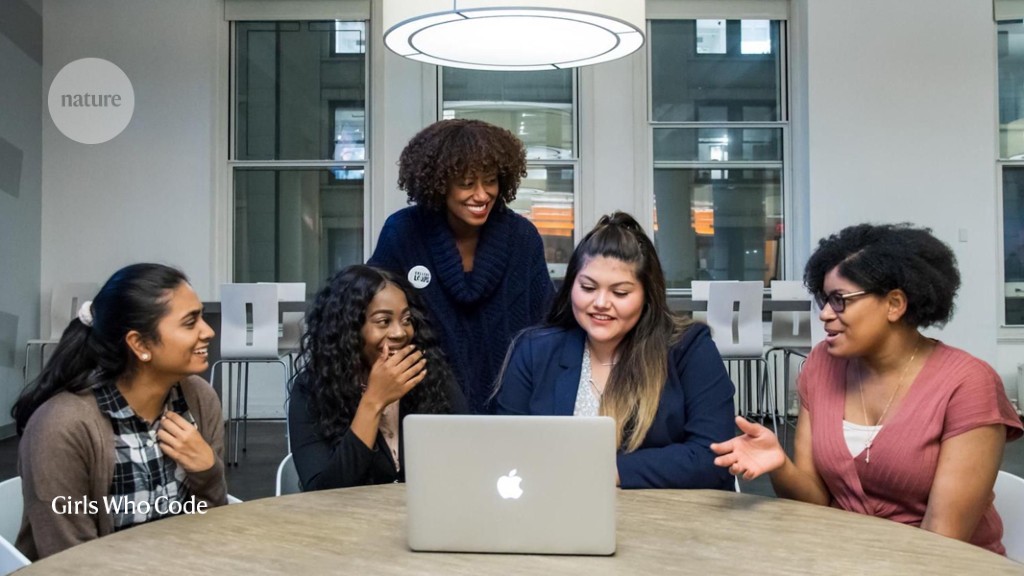
online groups lift up women in tech
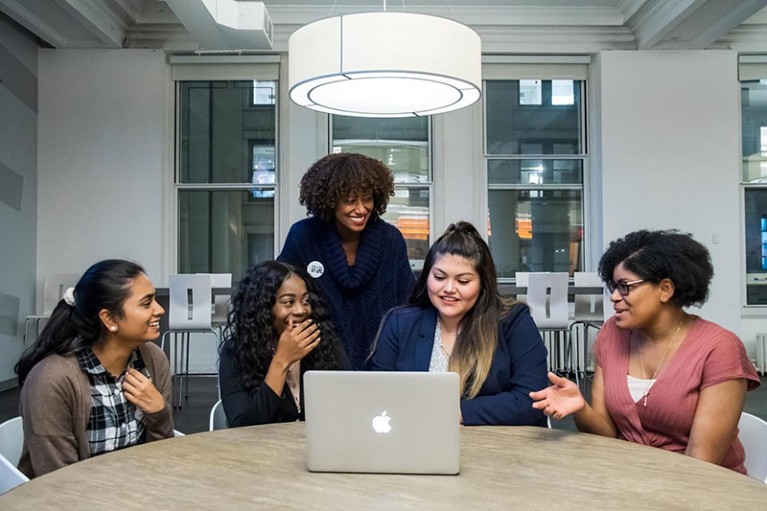
Tarika Barrett (centre) suggests that the technological know-how sector struggles to retain feminine workforce.Credit: Women Who Code
It is no secret that science, technologies, engineering and mathematics have a gender range trouble. Youngsters as young as 6 regard girls as being fewer fascinated than boys in personal computer science and engineering (A. Learn et al. Proc. Natl Acad. Sci. Usa 118, e2100030118 2021), and women are significantly less likely than boys to take part in superior maths and laptop-science courses and programmes. In 2021, females represented just 28{5376dfc28cf0a7990a1dde1ec4d231557d3d9e6448247a9e5e61bb9e48b1de73} of the US computing workforce, according to knowledge from the Nationwide Centre for Women & Facts Technological innovation in Boulder, Colorado, and they accounted for 26{5376dfc28cf0a7990a1dde1ec4d231557d3d9e6448247a9e5e61bb9e48b1de73} of US doctoral degrees granted in maths and pc science, in accordance to the Nationwide Science Foundation’s Survey of Gained Doctorates.
Exacerbating this disparity are workplace encounters of sexism, racism and other varieties of harassment — not to point out the ‘motherhood penalty’. Mothers in the workplace gain less than fathers do, and currently being a parent decreases women’s possibilities of advertising as nicely as their obtain to expert growth prospects and job growth.

Ladies in science
Closing this gender gap will demand extra than just education and learning and education. It will also call for mentorship and a specialist community. “You cannot be what you can not see,” suggests Tarika Barrett, an education reformer in New York City and main govt of the non-gain organization Ladies Who Code. The team is a person of quite a few that aim to support ladies from beneath-represented communities to tap into the social money required for place of work results in pc science.
These teams assistance pupils to get ready for interviews, share job chances and research collaboratively on advanced courses. Possibly most importantly, they offer a area for ladies, trans men and non-binary individuals, who knowledge the brunt of gender-centered discrimination, to vent and share their workplace struggles. Quite a few of these communities have formulated strong on line communities on collaboration platforms this sort of as Slack, by means of which they aim to interact and assist their associates. “I cannot underscore how vital this group is for ladies and non-binary folks,” Barrett states. “When they’re feeling as however they just cannot persist in the area, they have that local community to lean on, coupled with their pc-science know-how.”
Character spoke to the leaders of four such groups about the challenges they experience, allyship (see ‘About allyship’) and the will need for systemic transform.
TARIKA BARRETT: Just take action to deal with the gender hole
Main executive of Ladies Who Code in New York Town.
Element of what we do at Ladies Who Code is instruct computer science. We also get the job done to dispel the idea that women and individuals from minority groups don’t have a seat at the table as technologists. It is about continually interrogating stereotypes about who belongs in the know-how sector and making confident that we supply on-ramps into the field.
For example, universities really do not put together learners for technological interviews that evaluate their coding and difficulty-resolving competencies. Marginalized college students who deficiency possibly the social funds or the connections to get this assistance are still left on the sidelines. So, we made an job interview-preparing programme to help to amount that participating in subject.
Just one massive, ongoing problem is the tech industry’s incapacity to be welcoming to these youthful individuals one more is the punishing work society, which is rooted in systemic racism and sexism.
That can be alienating for men and women of colour, particularly when they get their very first task, but even more so for ladies of colour, for the reason that of the compounding consequences of racism and sexism. In 2021, only 5{5376dfc28cf0a7990a1dde1ec4d231557d3d9e6448247a9e5e61bb9e48b1de73} of US laptop or computer-science positions have been held by Black and Latina girls, even even though Black and Latino/Latina folks comprise far more than 30{5376dfc28cf0a7990a1dde1ec4d231557d3d9e6448247a9e5e61bb9e48b1de73} of the population.
We did a survey in 2019 and found that 50 {5376dfc28cf0a7990a1dde1ec4d231557d3d9e6448247a9e5e61bb9e48b1de73} of the females making use of for tech internships either had a adverse expertise of the marketplace or knew a person who did. Those activities ranged from a lack of representation, to sexist and racist opinions, to precise harassment. There is a significant retention challenge. 50 percent of females leave tech by the age of 35 because they locate their workplace inhospitable. When we couple that with some of the worries all-around attracting diverse talent, we will maintain fuelling a gender gap if we don’t deal with these challenges. There’s a large amount of operate to do.
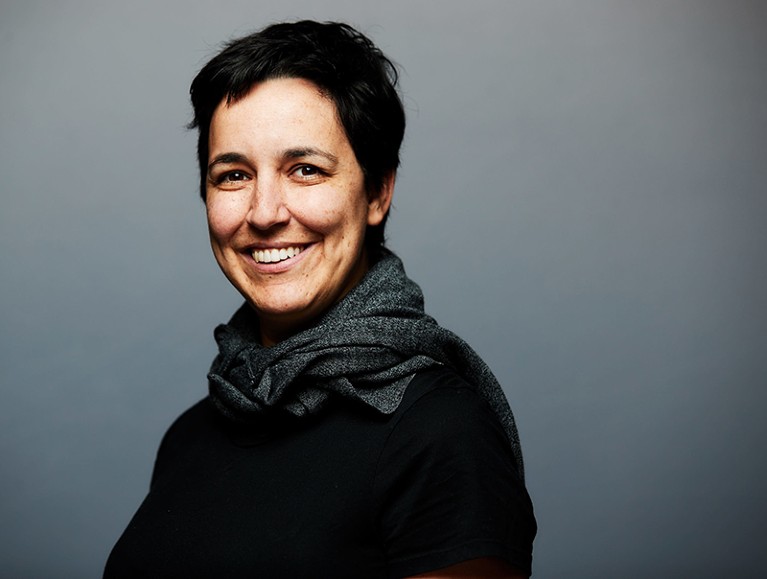
Gabriela de Queiroz wishes to improve range in people of the programming language R.Credit rating: Gabriela de Queiroz
GABRIELA DE QUEIROZ: Everyone has some thing to contribute
Founder of R-Ladies and a principal cloud advocate at Microsoft in San Francisco, California.
I moved from Brazil to San Francisco, California, in 2012 to do my second master’s degree in stats. Before long just after, I commenced heading to lots of functions to master about new technological innovation, but networking was tricky. As a latest immigrant whose very first language is not English, I did not sense confident adequate to go and communicate to men and women, and I did not see any one at these occasions who was like me.
Soon after a couple months, I preferred to lead a lot more. Folks were sharing their know-how in their spare time, and I wondered, is there something I can share with many others? I desired to generate anything a lot more inclusive and extra various all-around the statistical programming language R. That’s how R-Ladies arrived together in 2012.
At one particular of our very first occasions, we produced a analyze team in which we would work by on the internet courses jointly. Fewer than a year later on, a person from Taiwan e-mailed indicating they required to begin an R-Ladies chapter in Taipei. Now there are chapters in 216 metropolitan areas in 61 nations around the world, with far more than 100,000 users. We have Slack channels to converse, and guides and resources to aid chapters to remain energetic.
A person essential component when we set up the community was producing sure that everyone felt welcome, no issue their gender, track record, ethnicity or just about anything else. I greet absolutely everyone at gatherings, and we explain our code of perform each individual time. I have often felt that every person has some thing to add — and if they are not incorporated, we as a neighborhood are lacking out.
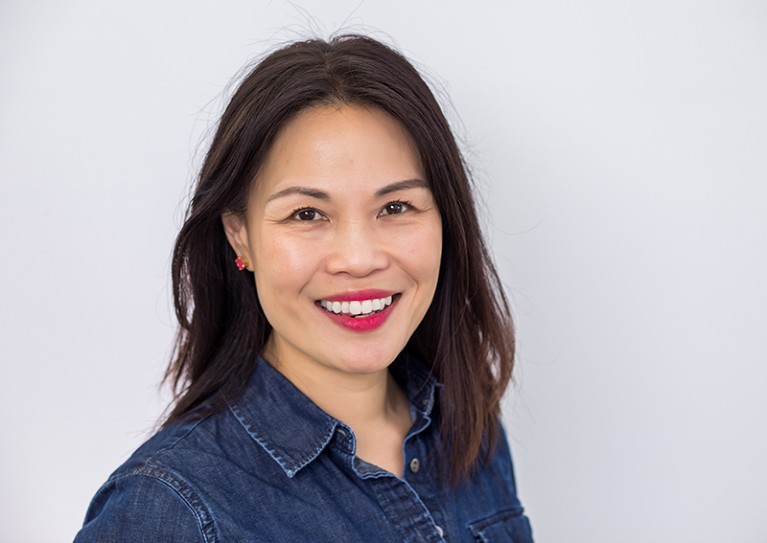
Tina Lee would like to give moms easier obtain to coding possibilities.Credit score: Tina Lee
TINA LEE: Common childcare is what I dream of
Founder of MotherCoders and is director of distinctive projects at Bitwise Industries in San Francisco, California.
The impetus for starting MotherCoders was recognizing that businesses that present coding opportunities for women and men and women from minority groups never usually aid mothers. There’s normally a structural hole in qualified advancement: options such as evening lessons, on the internet understanding and weekend bootcamps can be inaccessible to folks with caregiving tasks.
I don’t forget heading to a coding workshop more than a weekend since the organizers stated there was childcare. But it was just a volunteer who pushed my daughter’s stroller all over the making the second she woke up, she wished me. I held her in one arm and typed with the other for the rest of the workshop. At lunchtime, when every person was consuming and networking, I took my daughter and her stroller to the only area I could discover with a lock and door that wasn’t clear, mainly because I experienced to pump and feed her.
I started off MotherCoders in November 2013. I distribute the word by way of e-mail, Facebook and Twitter, and a number of months afterwards we ran a pilot programme in a co-doing work area in San Francisco that was vacant on the weekends. My 2nd child was about 6 months previous then. We experienced childcare on just one facet and the moms finding out to code on the other. The arrangement gave them a harmless place to discover, and there was no stigma linked with acquiring your baby on web-site. My daughter was there when I taught the classes.
But fundraising was truly difficult. I knew about the process from neighborhood organizing and getting associated in politics — my spouse and I met on US vice-president Kamala Harris’s very first-ever campaign in San Francisco. But seeking to elevate income from corporations and superior-net-well worth people today for MotherCoders was a completely diverse ball video game. I was starting off from scratch.
In our second year, MotherCoders was a finalist in the Google Effect challenge and been given a grant. But we were treading drinking water for a extensive time. Right after six years — several of which I labored without the need of a salary — I received tired of pushing this rock up a hill. That is how MotherCoders became the non-profit arm of Bitwise Industries. Bitwise is a for-earnings corporation, but MotherCoders is really mission-aligned with it, in that the enterprise is schooling underserved communities and jogging apprenticeships and so on. What definitely sealed the offer for me is that the agency designs to present on-web page childcare at each centre it operates, which was generally my dream. It’s what we have to have.
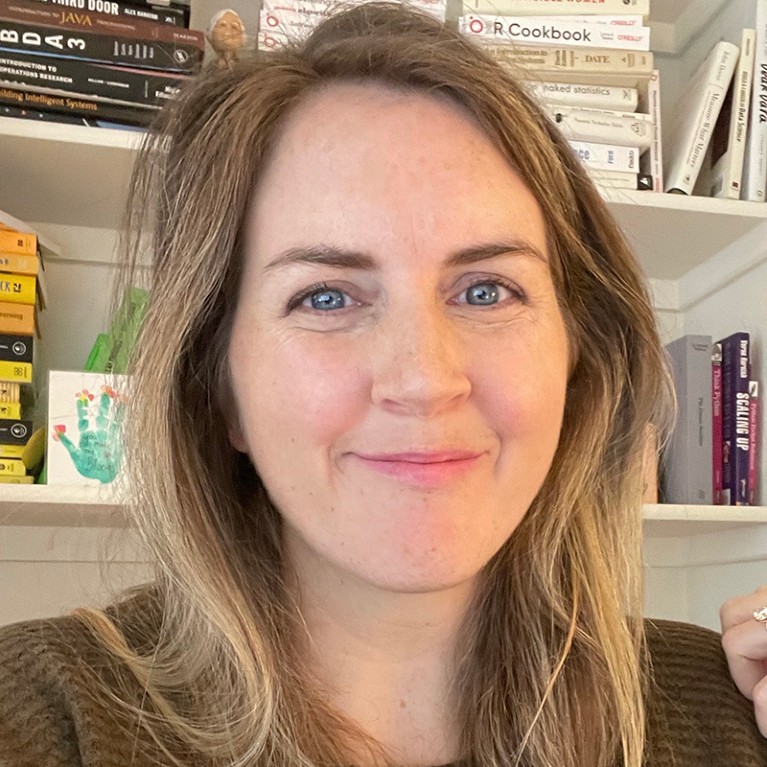
Dedicated room is crucial, states Caitlin Hudon.Credit score: Caitlin Hudon
CAITLIN HUDON: Females in technologies require their individual events and areas
Founder of ALL the Females in Tech and the R-Girls chapter in Austin, Texas, and a details scientist at Figma in Austin.
When I attended gatherings for girls in technological innovation, I kept assembly men and women who essentially really should have known just about every other for the reason that they are in the identical subject, but didn’t. I attained out to the organizers of all these groups and set up a quarterly mega gathering named ALL the Women in Tech, at which each individual team talks about what they have coming up during that period. We make announcements about careers, schooling opportunities — anything suitable to this bigger group. The goal is to get everyone in the identical room to network and find out about all the alternatives.
I also co-founded the R-Girls chapter in Austin, Texas, which took a whole lot of forethought and operate. It’s not just scheduling an event and hoping people will display up. Making an attempt to have an understanding of what will appeal and then altering the information, scheduling or place to fit people parameters is a bit of a finding out curve. For instance, we feel about what means we really should share immediately after an occasion. If we do 5-minute ‘lightning talks’, we consider to acquire all the slides in a GitHub repository so that people can revisit them later.
There’s a whole lot of bonding more than shared activities, discussions about what roles exist and the get the job done society at a variety of sites. I think from time to time gals and persons who aren’t as nicely represented in tech recognize the value of this local community in a way that other individuals don’t.
From time to time males talk to why we require these different communities — why can’t they arrive as well? That’s a issue I have struggled with above the a long time. Partly, it is for the reason that of the distinctions in our day-to-day experience: gentlemen are normally functioning with other gentlemen on a workforce, and they’re utilised to acquiring commonalities with co-staff. But for females and people from minority groups, you have to function tougher to satisfy men and women like yourself.
Getting a dedicated room, in which men and women can question issues, get suggestions and have the independence to be more vulnerable than they could possibly be if not, is a definitely healthy, important thing.
